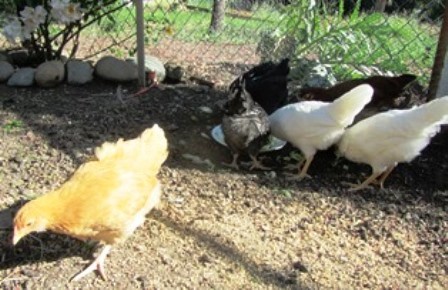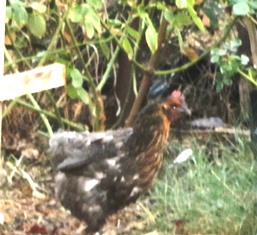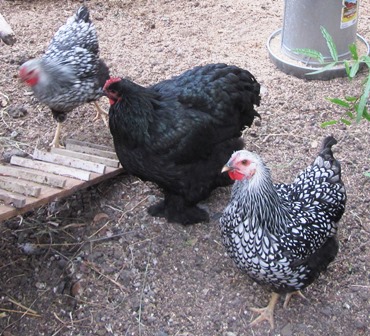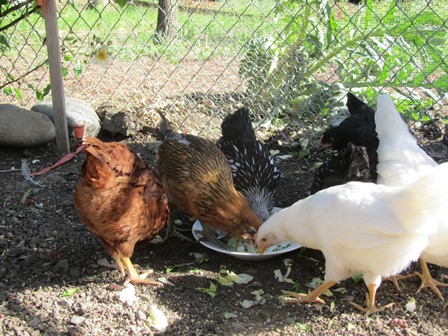New Rules Mean Happier Chickens, Healthier Eggs
The Obama administration has proposed new animal welfare standards that ban common practices governing chicken farms. Currently, an organic chicken farm may allow chickens outside to roam on concrete. The new rules specify the chickens must have access to the outside and to soil.
Currently, certified organic farms allow chickens to have a specific amount and quality of outdoor activity. But that doesn’t mean access to dirt for scratching, pecking, and dust bathing that are instinctive behaviors for chickens.
Under the proposed new rules to be certified organic eggs, the chickens producing them must be allowed 1.5 square feet of space per hen indoors and 2 square feet of space outdoors. Outdoor space must be at least half soil and not have a permanent roof or flooring.
The new rules means chickens can scratch, peck, and bathe in soil instead of being caged where they do not necessarily have access to soil. Current egg producers will have five years to implement the proposed changes that also specifiy no de-beaking of chickens.
Already, McDonalds and other large food corporations have advised that they’ll be making the transition to certified organic along with Walmart. Certified organic eggs under the new rules will mean more humane and better life for the chickens producing those eggs than for chickens whose eggs are labeled “cage-free.”
Currently, cage-free eggs mean the chickens producing those eggs do not necessarily get access to the outdoors as the new O’bama administration rules propose.
There will be a sixty day comment period before the rules can go into effect. But for animal protection advocates and supporters of the organic food movement, the new proposed rules are a welcome change.
* * *
If you enjoy reading about farmette topics (including gardening, beekeeping, and delicious recipes), check out my cozy mysteries A BEELINE TO MURDER and also THE MURDER OF A QUEEN BEE in the Henny Penny Farmette series (from Kensington Publishing).
Both are available through online retailers such as Amazon, Barnes & Noble, and Walmart as well as from traditional bookstores everywhere.
Now available in mass market paperback, this novel launched the Henny Penny Farmette series of mysteries and sold out its first press run.
The second cozy mystery in the Henny Penny Farmette series, available Sept. 29, 2016
Chicken Bad Behavior–Best Nipped in the Bud
Many factors can affect the health and egg laying of your chicken flock, including weather, housing, size of population, breed, molting, parasite load, and nutrition. But when chickens start viciously pecking other hens or eating eggs, the underlying issues must be addressed.
Most often, the issue is a case of stress. Causes of chicken stress include overcrowding, excessive heat, too much bright light, lack of food and/or fresh water, and bad diet.
Other factors can include disruption of the pecking order by introducing new birds, especially those of other breeds (for example, fowl with combs and those without) or mixing old fowl with young. These factors all relate to flock management.
When birds start eating eggs (usually finding a cracked egg or broken ones, tasting them, and then pecking eggs to break them to eat) or viciously pecking on other hens, it’s best to figure out what in the hens’ environment is causing the stress. The causes must be eliminated.
For more tips on farming and beekeeping, plus delicious recipes, check out my newest mystery–A BEELINE TO MURDER. See, http://tinyurl.com/p8d6owd
 Facebook
Facebook Goodreads
Goodreads LinkedIn
LinkedIn Meera Lester
Meera Lester Twitter
Twitter








